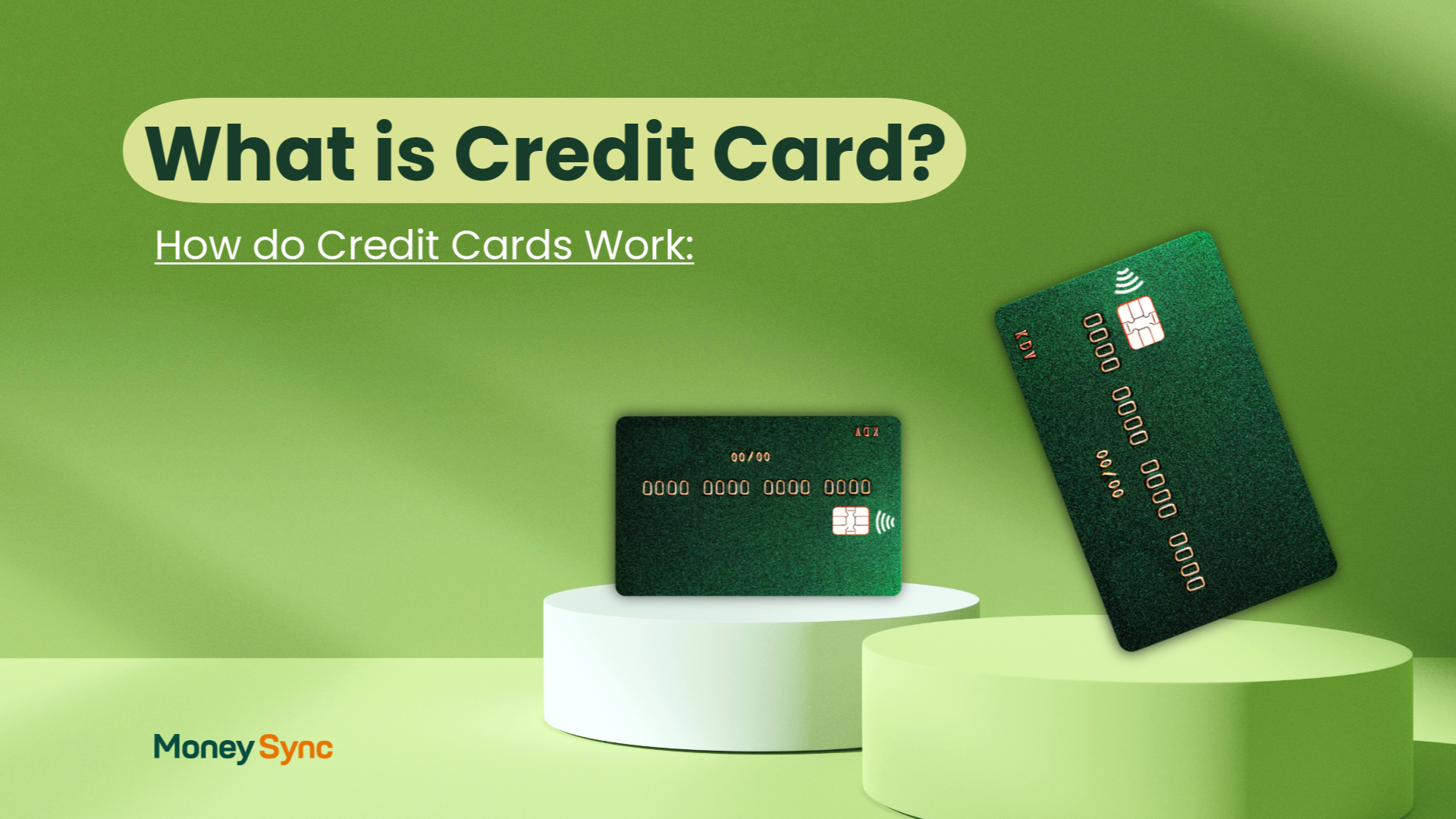How to Improve Credit Score with the Right Credit Card

 Aruna Singh
Aruna Singh
Improve credit score with the right strategies and credit cards. Learn how to build better credit and boost your financial health effectively.
Your credit score isn’t just a number—it’s the key to better financial opportunities. A good score can unlock lower interest rates, higher credit limits, and even better chances of loan approvals. But if your score isn’t where you want it to be, don’t worry—credit cards can help!
Well! The right card, when used wisely, can boost your score by building a strong payment history and improving your credit utilization. To understand how to improve credit score with the best credit card, it’s crucial to know the importance of credit score. In this blog, we’ll explore how to opt best credit card for poor credit and simple strategies to make your credit work in your favor!
What is a Credit Score and How They Work
Your credit score is like your financial report card—it tells lenders how responsible you are with credit. But why does it matter?
A higher score can mean better loan approvals, lower interest rates, and access to premium financial products. On the other hand, a low score can limit your options and make borrowing expensive. Let’s look at the key parameters that can make or break your score.
Key Factors That Impact Your Credit Score
How to improve your credit score with a credit card? Well! Several factors influence your credit score, including:
-
Payment History – Making payments on time is the biggest factor affecting your score. Even one late payment can hurt it.
-
Credit Utilization – This is the percentage of your credit limit you’re using. Experts recommend keeping it below 30% to maintain a good score.
-
Length of Credit History – The longer you’ve had credit, the better, as it shows stability. It is one of the key factors to improve credit score.
-
New Credit Applications – Too many applications in a short time can lower your score.
-
Credit Mix – Having different types of credit (credit cards, loans, etc.) can help your score.
Now here arises a question. How to find a credit card that fits your budget and maximizes your benefits?
We agree! Thousands of credit cards claim to be the best fit. In such a situation, choosing the best credit card can be a complex decision. Here comes Bank Reviews as an efficient solution where you can explore, compare, and choose the best credit card for your credit score within minutes. You can find detailed insights on all banking products in one dashboard, making it easy to compare and choose the best option.
- Comprehensive Insights – You can get all the details about interest rates, fees, benefits, and rewards in one place.
- Credit Utilization – This is the percentage of your credit limit you’re using. Experts recommend keeping it below 30% to maintain a good score.
- 45+ Banks, All Banking Products – You can explore detailed information on credit cards, loans, and other financial products from 45+ leading banks, all in one place.
How to Improve Credit Score with the Right Card
To improve credit score, choose the best credit cards for credit score growth. If you're starting, consider credit cards to boost credit score, like secured or low-limit credit cards.
Tips to Maintain a Healthy Credit Score:
-
Pay your bills on time—set reminders if needed!
-
Keep credit utilization low.
-
Avoid applying for too many credit cards at once.
-
Regularly check your credit report for errors.
Secured vs. Unsecured Credit Cards: Which One is Right for You?
Choosing the right credit card can be a game-changer, especially if you’re trying to improve your credit score. But before you apply, it’s important to understand the difference between secured and unsecured credit cards—both serve different purposes and cater to different financial needs.
What’s the Difference?
Secured Credit Cards: Require a refundable security deposit, usually equal to your credit limit. Ideal for those with poor or no credit history.
Unsecured Credit Cards: Do not require a deposit and are issued based on your creditworthiness. These are the standard credit cards to boost credit score when used responsibly.
Which One Should You Choose?
Go for a Secured Card if:
-
You're building or rebuilding your credit.
-
You have a low credit score and don’t qualify for traditional cards.
-
You can afford the deposit and want a safer way to build credit.
Opt for an Unsecured Card if:
-
You have a good or excellent credit score.
-
You want access to higher credit limits and rewards.
-
You’re looking for the best credit cards for credit score improvement with perks like cashback or travel rewards.
Best Credit Cards for Low Credit Scores
Myth: If you have a poor credit score, not all credit cards will be available to you.
Well! Let’s clear the misconceptions. You can improve credit score with a lifetime free credit card too. You just need to keep a check on three aspects before opting for one. Here are some great options:
1. Secured Credit Cards (Ideal for rebuilding credit)
-
Require a refundable security deposit.
-
Reports to all three major credit bureaus.
-
Good for people with little or no credit history.
2. Unsecured Credit Cards for Bad Credit (Higher approval chances, but with fees)
-
No deposit is required.
-
Can include higher interest rates or fees.
-
Great for those looking to improve credit without upfront costs.
3. Credit-Building Cards from Major Banks (For gradual score improvement)
-
Designed for people with fair or bad credit.
-
Some offer rewards and cashback.
-
Can help you transition to better cards over time.
Tips to Improve Your Credit Score Using a Credit Card
1. Pay Your Bills on Time
Your payment history plays a huge role in determining your credit score. Even a single missed payment can bring it down. Set reminders or enable auto-pay to ensure you never miss a due date. Paying your bills on time consistently shows lenders you’re responsible, which helps build a strong credit profile.
2. Keep Your Credit Utilization Low
Credit utilization is the percentage of your available credit that you're using. Ideally, you should keep it below 30%. For example, if your credit card limit is ₹1,00,000, try not to spend more than ₹30,000. Low credit utilization signals financial discipline, which can help improve your credit score over time.
3. Avoid Multiple Hard Inquiries
Every time you apply for a new credit card or loan, lenders check your credit report, which creates a hard inquiry. Too many hard inquiries in a short period can lower your score and make you seem like a risky borrower. Instead of applying for multiple cards at once, research and pick the best credit card for your credit score before applying.
4. Monitor Your Credit Report Regularly
Errors in your credit report can hurt your score without you even realizing it. Check your credit report regularly to spot inaccuracies, unauthorized transactions, or old accounts that should have been closed. Correcting these errors can help improve your credit score quickly.
Summing It Up
In conclusion, improving your credit score doesn’t have to be complicated. The right strategy, combined with the best credit cards for credit score, can help you boost your financial standing. Just remember:
-
Pay your bills on time.
-
Keep your credit utilization low.
-
Choose credit cards to boost credit score wisely.
With smart habits and the right tools, you can improve credit score and unlock better financial opportunities. Stay consistent, and your credit score will thank you!




